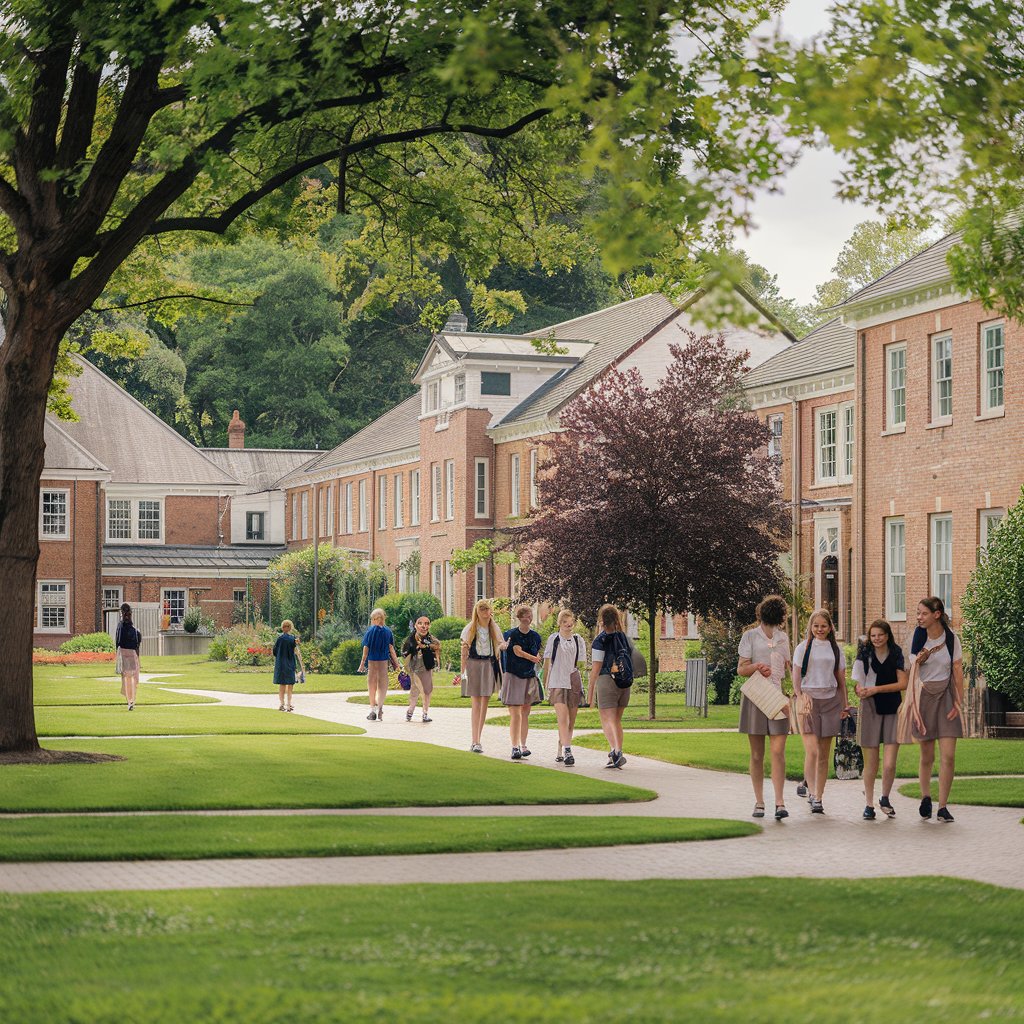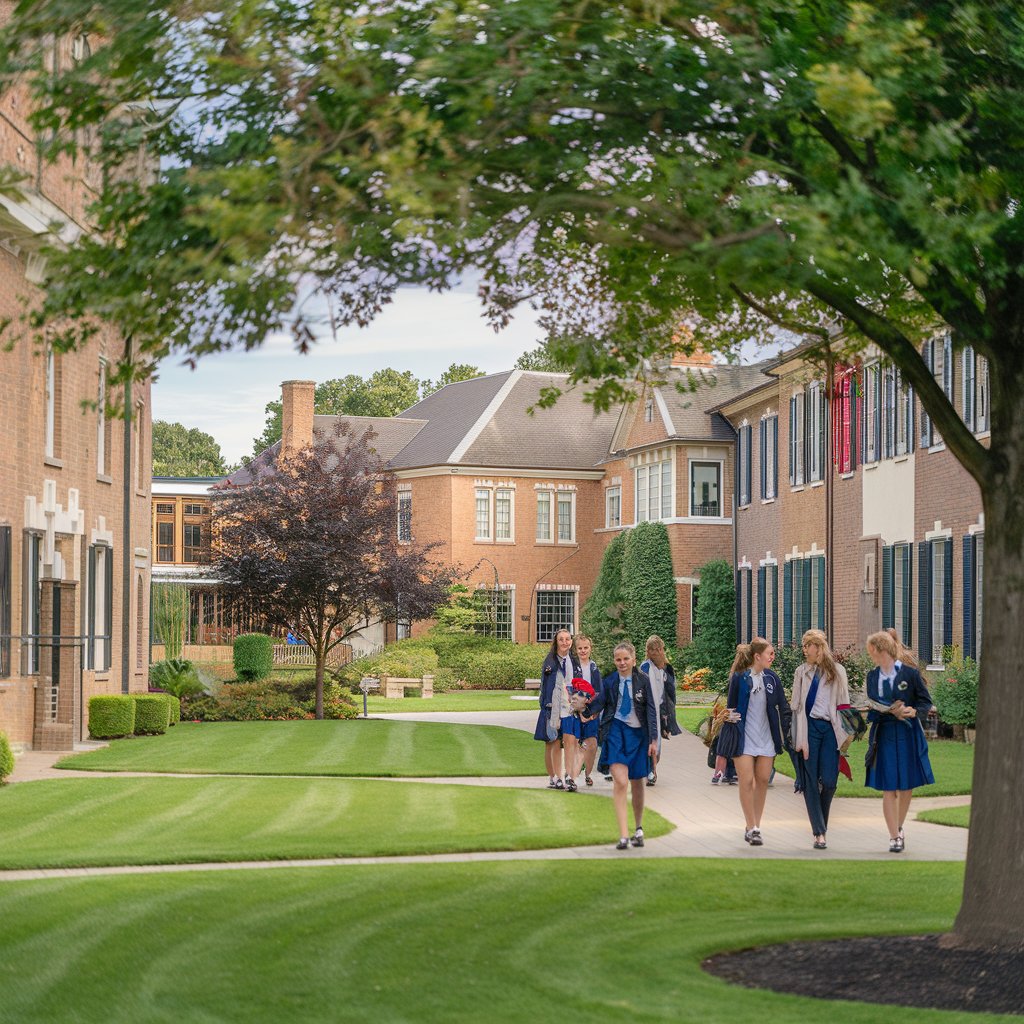Feeling lost with boarding school options? It’s a tough choice for any parent. Fear no more. I’ll help you navigate this journey. You’ll learn what truly matters. And find tips to make a sound decision. Stay tuned for expert advice.
1. Introduction
1.1 Definition of Boarding School
Boarding schools are educational institutions where students live on campus during the academic year. They offer a unique blend of academic rigor and personal growth opportunities, creating a home away from home for students.
1.2 Importance of Choosing the Right School
Picking the right boarding school is a big deal! It’s not just about academics – it’s about finding a place where your child can thrive, make lifelong friends, and develop important life skills. The right choice can set the stage for a bright future, so it’s worth taking the time to explore your options carefully.

2. Types of Boarding Schools
2.1 Traditional Boarding Schools
These schools focus on providing a well-rounded education with a mix of academics, sports, and extracurricular activities. They often have a long history and established traditions.
2.2 Military Boarding Schools
Military schools emphasize discipline, leadership, and physical fitness alongside academic studies. They can be a great fit for students who thrive in structured environments.
2.3 Religious Schools
These schools incorporate religious teachings and values into their curriculum, offering spiritual growth alongside academic education.
2.4 Therapeutic Boarding Schools
Designed for students with emotional, behavioral, or learning challenges, these schools provide specialized support and counseling services.
2.5 College-Preparatory Boarding Schools
With a strong focus on academics and college readiness, these schools aim to prepare students for success in higher education.
3. Factors to Consider
3.1 Location
Think about whether you want a school close to home or if you’re open to options further afield. Consider the climate, surrounding area, and ease of travel.
3.2 School Reputation
Look into the school’s track record and what former students and parents have to say about their experiences.
3.3 Curriculum and Programs
Check if the school offers subjects and programs that align with your child’s interests and goals.
3.4 Extracurricular Activities
A good mix of sports, arts, and clubs can help your child discover new passions and develop well-rounded skills.
3.5 Teacher Qualifications
Skilled and experienced teachers can make a world of difference in your child’s education.
3.6 Student-Teacher Ratio
Smaller class sizes often mean more individual attention for students.
3.7 Facilities and Resources
Modern labs, libraries, sports facilities, and technology can enhance the learning experience.
3.8 Cost and Financial Aid
Boarding schools can be expensive, so consider your budget and explore financial aid options.
4. Academic Excellence
4.1 Accreditation
Make sure the school is accredited by recognized educational bodies.
4.2 College Acceptance Rates
This can give you an idea of how well the school prepares students for higher education.
4.3 Advanced Placement Courses
These can give students a head start on college credits and demonstrate academic rigor.
4.4 Class Sizes
Smaller classes often allow for more personalized instruction and better student-teacher interaction.
5. School Environment
5.1 Safety Measures
Look into the school’s policies and procedures to ensure your child’s safety and well-being.
5.2 Discipline Policies
Understanding how the school handles discipline can give you insight into its values and approach to student development.
5.3 Student Support Services
Check what kind of academic, emotional, and social support is available to students.
5.4 Diversity and Inclusion
A diverse student body can enrich your child’s educational experience and broaden their perspectives.

6. Visit and Research
6.1 Campus Tours
Nothing beats seeing the school in person to get a feel for the environment.
6.2 Open Houses
These events can provide valuable insights into the school’s culture and community.
6.3 Speaking with Students and Staff
Hearing directly from current students and staff can give you a more authentic picture of life at the school.
6.4 Reading Reviews and Testimonials
Online reviews and testimonials can offer additional perspectives, but remember to take them with a grain of salt.
7. Making the Decision
7.1 Comparing Options
Make a pros and cons list for each school you’re considering to help you compare them objectively.
7.2 Discussing with Family
Involve your child in the decision-making process and consider input from other family members.
7.3 Trusting Your Instincts
Sometimes, after all the research, it comes down to which school feels like the best fit for your child.
8. Conclusion
8.1 Recap of Key Points
Remember to consider the type of school, location, academics, extracurriculars, and school environment. Don’t forget to visit campuses and speak with current students and staff.
8.2 Final Thoughts on Choosing the Best Boarding School
Choosing a boarding school is a big decision, but with careful research and consideration, you can find a school where your child will thrive academically and personally. Trust the process, and don’t be afraid to ask questions along the way. The perfect school for your child is out there – happy hunting!




